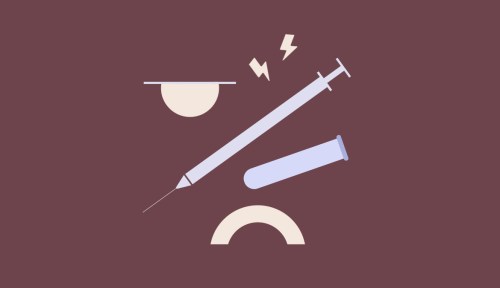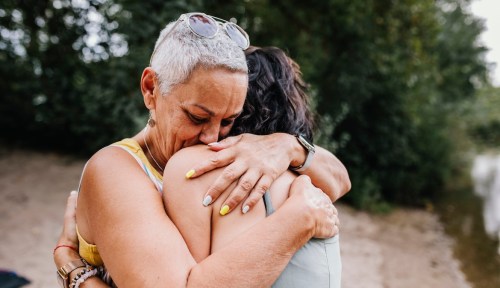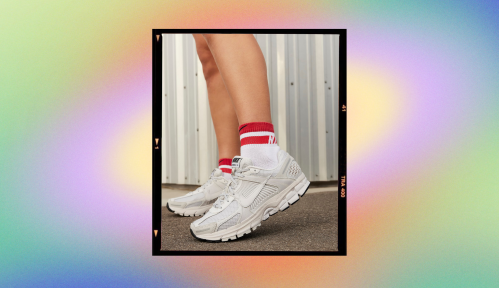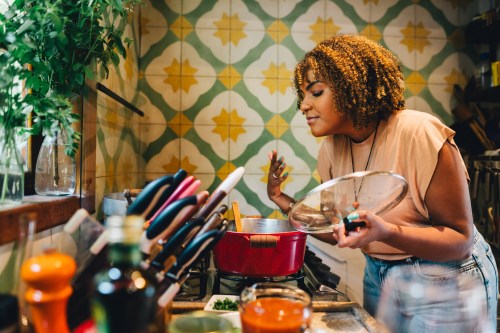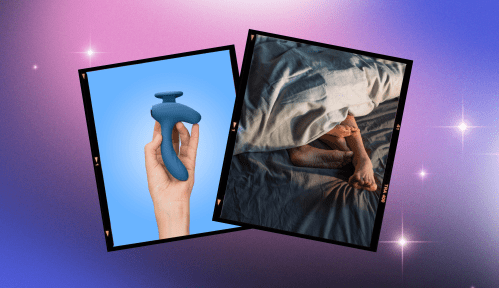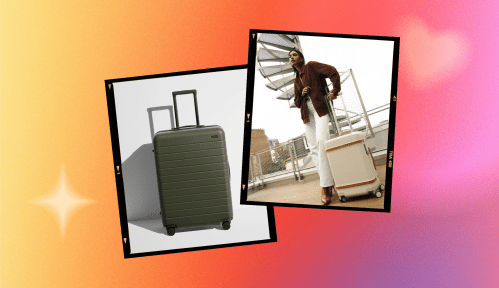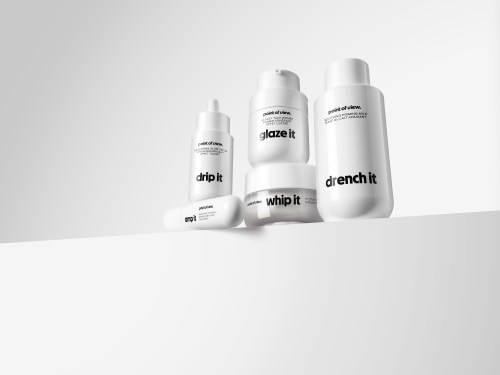When my 92-year-old grandmother recently told me she got the first dose of her COVID-19 vaccine, my first thought was, “Thank God.” And then (and I am not proud to admit this) came my second thought: “Wow, I’m jealous.”
Experts in This Article
Dr. Charmain F. Jackman is a licensed psychologist of Barbadian heritage with over 23 years in the mental health field. She is the founder & CEO of InnoPsych, Inc., an organization on a mission to disrupt racial disparities in mental health. Her goal is focused on changing the face of therapy by ensuring that anyone who wants therapy can find a therapist who understands their cultural background.
I am 29 years old, healthy, and able to work from home, which puts me pretty far down on the waiting list to receive the vaccine right now. And trust me—I’m grateful for my low-risk status and certainly don’t believe I am more deserving of a vaccine than those ahead of me in the line. I also understand that the more people who receive the vaccine (no matter the order), the better chance we all have of achieving herd immunity. But still, as I see vaccinated friends and family members start to feel more confident in their imminent return to semi-normal life after getting their vaccines (that is, a life in which they can step outside without the immediate fear of contracting the coronavirus), I’ve found myself selfishly thinking, “I wish that were me.”
According to licensed psychologist Charmain F. Jackman, PhD, I’m not alone in feeling these complicated emotions; in fact, the Internet has already coined the term “vaccine envy” to describe them. And vaccine envy is not not your typical strain of jealousy. “It’s not like you’re trying to keep up with the Joneses, or that you’re jealous of someone who has a new car—this is something that’s potentially life-saving, which adds pressure and urgency,” she says, adding that constantly seeing news of the vaccine on social and news platforms alike only serves to intensify these feelings.
How to put your vaccine envy into perspective
First, Dr. Jackman urges you to introspect about the roots of your jealousy to break down what’s guiding your thoughts. For instance, experiencing vaccine envy doesn’t mean you want other people to not have the vaccine, but rather, you want to experience the mental relief you imagine getting it affords.
“Although we know that having the vaccine doesn’t mean you can’t get [the coronavirus], and that you still have to take precautions…it does create this sense of a magic bullet that means if you get this [vaccine], you’re okay,” says Dr. Jackman. “People think, ‘Maybe if I get the vaccine, I won’t be as anxious walking around or being around my family members,’ so it does represent a sense of getting back to normal.”
“People think, ‘Maybe if I get the vaccine, I won’t be as anxious walking around or being around my family members,’ so it does represent a sense of getting back to normal.” —Charmain F. Jackman, PhD
The lack of clarity and consistency among vaccine rollout plans from state to state are only exacerbating feelings of vaccine envy—and the fact that the general rollout has been what many major news outlets have called total “disaster” doesn’t help either. Despite former President Donald Trump’s September promise that the United States would have vaccinated 100 million people by the end of 2020, as of January 30th, Centers for Disease Control and Prevention (CDC) data shows the country had only distributed 50 million doses that have been successfully administered to 30 million people.
And because vaccine plans differ so widely, there’s no stable timeline for knowing when your turn to get one might come, which some might take as a sign to question whether that time will ever come. “If you’re not high on the list, there’s a worry of, ‘What if they run out?’ and ‘When is my turn?’” says Dr. Jackman. “So it perpetuates that situation of urgency and instability for people, and it does feel like it’s prolonging this ability to go back to a comfortable existence.”
“It’s such a messy mental mindset, because I want the most vulnerable people to get what they need, but I also want to get mine,” says Taylor Barlow, a 30-year-old based in Connecticut. “It’s hard seeing so many different rules, because at least if it were consistent I could say, ‘I don’t have mine, but it’s the same for every person in my situation, because we’re in it together.’ But then I feel bad for thinking that.”
Where there’s vaccine envy, there’s also vaccine guilt
In some places, people who would otherwise be at the end of the list have been able to secure vaccines simply by being in the right place at the right time. Across the country, “vaccine chasers” have been lining up at clinics in the hopes of being able to score an unused dose that would otherwise have to be thrown out at the end of a day.
Here’s what you need to know about vaccines:
25-year-old Kelly*—who has no underlying conditions—was able to get the vaccine in Texas (where she says “they’re giving them out like hotcakes”) earlier this year. “I’m so beyond grateful to have gotten it, but it makes me so upset to hear that my friends in other states, with worse conditions than mine, aren’t able to get appointments,” she says. “[Vaccine distributors] have to use the vials they open, so since they were going to waste, I jumped on it. But when I talk to my friends who actually need it and can’t get it, I feel guilty.”
Guilt and envy are both rooted in feelings of shame, and though you may not feel great about experiencing a twinge of either no matter your vaccine status, neither emotional response is unwarranted or abnormal. “I always tell people, you have to feel what you feel. When you judge your feelings and try to deny them, you’re not giving yourself compassion, and that can be more harmful,” says Dr. Jackman. In other words, it’s okay to be jealous about the vaccine—so try to let yourself experience it without judgment (as long as you’re not scheming to cut the line).
*Name has been changed
Oh hi! You look like someone who loves free workouts, discounts for cult-fave wellness brands, and exclusive Well+Good content. Sign up for Well+, our online community of wellness insiders, and unlock your rewards instantly.
Sign Up for Our Daily Newsletter
Get all the latest in wellness, trends, food, fitness, beauty, and more delivered right to your inbox.
Got it, you've been added to our email list.
